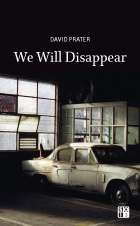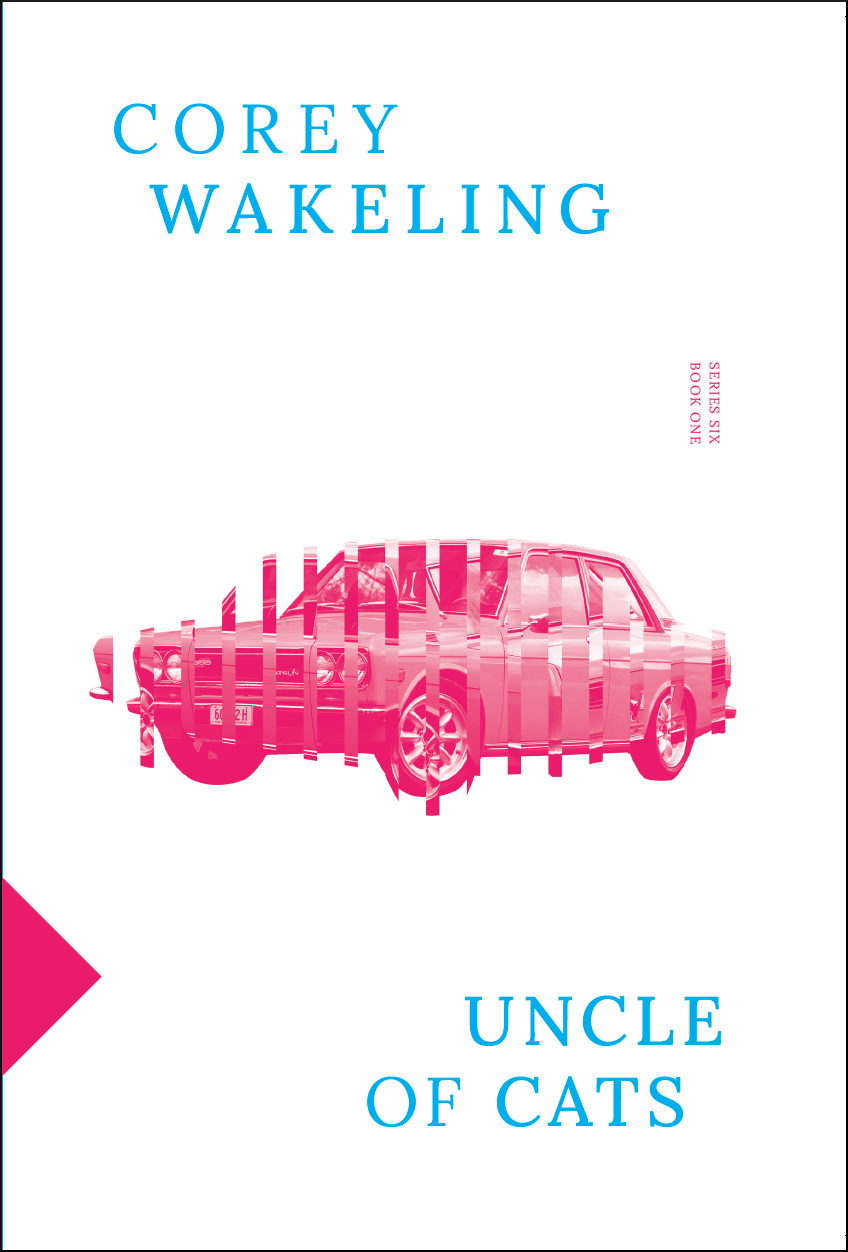 We Will Disappear by David Prater
We Will Disappear by David Prater
papertiger media, 2007
Our Life is a Box. / Prayers Without a God by MTC Cronin
papertiger media, 2007
It would be unfair to David Prater and MTC Cronin to construct some tenuous link between their new collections for the sake of this review: each volume is stylistically unique, showcasing two skilled, albeit different, voices on the Australian poetry scene. While in Prater we have a poet for the digital age who can twist its soundscapes and textures and still retain an artistic core, in Cronin we have an author who demonstrates again her understanding of timeless themes such as pain, loss and love, and attests to their permanence.
Prater's collection We Will Disappear opens with lively, 'aural' poems, as lines crackle and pop with alliteration and internal rhymes. While these techniques are not new, Prater handles them with a modern sensibility. He has an ear for all the sounds of today's world from the musical to the abrasive, sometimes finding where the two converge. 'Airliner', for example, employs a rudimentary semi-rhyme to chilling effect:
emergency hammer laden with an axe
sue me sony walkman pow wow attack
we know the atlantic like no other mac
disaster prediction no longer paperback
The lines sound like metal tearing. You can 'hear' and therefore imagine the plane coming apart without the author once having to tell us. In other instances the attention to sound is less dramatic but no less evocative. When reading the opening lines from 'Let's Fight the Pop-ups!', for example, my first thought was of the electronic hissing of modems dialing up. Just as this is the sound of information streaming in, the poem itself rushes in with its heady imagery:
meddling kids with their internet
pop-ups planting jitches in those
unexpected drum / fill my crevice
moments inevitable dooms i fall
between the terminals of thunder
& the beginnings of the jaundiced
In our information-saturated, hyper-connected, post-industrial world there is so much to take in, and Prater is able to call its tune. Song titles and band names jostle with political figures and current events, and the layers are spun together without being brought to rest. These references are not, however, hysterical erudition. The poems point to an expression through excess. So many names, places, stories, yet the author is able to pluck them from the abundance to voice what is lost amongst them. Sentimentalists may do this by conjuring false ideals, but Prater is able to confront the world around him, its tackiness, its indifference, its hyperactivity and impermanence, through a language of self-expression.
There are more strings to Prater's bow than just his use of sound. He is also a skillful satirist. 'Dexedrine Bombs', for example, parodies the frenetic speech of an amphetamine user and fighter pilot. A bombing run is blended with a hit of speed. Violence and imperialism are just another high. Prater's dark wit also comes to the fore. When the pilot says, 'my fire is friendly/every time' we may laugh at this twisting of an already perverted military language but are soon shocked to remember that this mock bravado is in fact very real.
We Will Disappear also includes a number of travel poems. Most poets have composed a piece to fellow travellers while waiting for trains, buses and planes; but Prater rises above the hordes of tourists and the hordes writing about them by eschewing the most obvious target. The narrator of 'The Happy Farang', for example, sounds more naive than boorish. He/she believes they are experiencing the real culture while really 'shitting' on it. 'Non-Touristic Trek' reads like a travel brochure for promising an unconventional trip for people who want more from their holidays; and, of course, 'Credit cards are welcome!'
Prater's strength lies more in adopting a persona or remaining objectively descriptive, rather than looking through his own eyes. Where the poem seems to be about the poet himself, the work doesn't have the same energy or bite. The sentiments expressed in 'Abstract Moon' and 'When we were in the Wild', in particular, are at odds with Prater's more sophisticated sensibilities. This is especially true of the latter which overly romanticises pre-modern society. Prater has shown himself to be too clever and too attuned to the many layers of society to really believe in a prehistoric utopia. This said, the most arresting piece in We Will Disappear is also its most conventional and personal: 'Spring' is gentler than the other poems, and the movement of time and the loss that it brings are captured without overstatement. It conveys to us the individual who through most of the collection has remained the commentator and observer.
MTC Cronin's Our Life is a Box./ Prayers Without a God are two seemingly distinct sequences whose connections are more thematic than stylistic. The first sequence concerns the lead up and aftermath of the shooting of the unnamed narrator's mother. Echoing the destruction wrecked by the fatal shot, the sequence is fractured so that past and present sit side by side like scattered fragments. The readers must go through each with care and precision to recreate the events and their impact. When they do they will see that Cronin has created a work of immense clarity and beauty. The language is confessional and, though plain and bare, explores the limits of this style:
My liver burns now
But when your father
Shoots your mother
The footsteps of the leaves
fall around you
Softly, the sound of the gun,
placed on the kitchen table
Bird-patterned cloth wet with
what was inside her head
The horror doesn't need overstatement. The simplicity captures all the gruesomeness with its precision and obviousness. Too much colour, too much description and we wouldn't be convinced the narrator felt anything for her mother. In these moments we expect the effectiveness of languages to be reduced and the true feelings expressed in this semantic gap. When everyday images are employed, they are rich and well measured. The narrator, for example, describes her departure by saying:
What you pack relates in no way to the journey
which I took like a leach-pawed dog dragging
by the neck all the way from yesterday
to tomorrow
Here the poet seems to be suggesting that when we leave, we either burden ourselves with the past, or our future is not what we expected; and yes, the things we take with us often resemble 'a leachy-pawed dog': damp, redolent with odours, unyielding and cumbersome. The dog returns later in the poem as 'the shadow of a plane', skulking 'and grown'. She uses this one image of the dog to show how the familiar can be threatening.
Cronin's images never become a simple code. She never employs a crude one-for-one system of exchange between the world and the poem's description of it. At the narrator's mother's grave, a young bird is found in a nest. The chick is 'fat' and 'fluffy' but 'screams and screams' as our narrator approaches. Her reaction is to 'threaten to jam/a rose down its throat.' Here tenderness and violence merge; and Cronin does not seek an artificial comfort in the natural world. When the narrator's father is finally laid to rest in the box of the title, Cronin again handles this image with a sense of multiplicity: a box can confine but can also hold and by holding protect and provide comfort. Here the fragments of this sequence come together; but the father and the poem itself cannot simply be shelved and forgotten:
This is the box
I will die in
And I want to be buried
With my eyes open
In the castle of imagination.
Also included in Our Life is a Box./ Prayers Without a God is 'The Cats of Rome', a sequence, or 'litter', of fourteen sonnets, which figures as the work of the narrator of Our Life is a Box. It is much more fluid than the first sequence, and its images mix and float beside each other, whereas in Our Life is a Box individual verses, though pieces of a larger whole, retained individual characters.
The formal structure of the sonnet doesn't constrain Cronin. She subverts the sonnet by using the form to undermine itself. While her sonnets, though not strictly Petrarchan or Shakespearian, establish a certain expectation of completeness and closure, they are not so easily packaged. The first sonnet ends with what sounds like a poetic sound bite for our age: 'irregularity is full of desire in this Alex/Pope half world of fools.' You can almost hear the teeth clenched, but she doesn't allow the poem to rest there. The opening of the second sonnet pulls us further, 'and the many-headed amanuensis/watches advertisements in her/painted nails changing their colour.' Neither life nor poetry offer neat endings. This openness is achieved quite simply with the paratactic 'and'. It's that universal syntactic glue that we were warned against at an early age but which Cronin imbues with urgency.
An ironic knowing is maintained throughout 'The Cats of Rome'. The facts are related as if to question what is the sum total of this knowledge. The sequence opens with the narrator watching a documentary. Science and myth get a nod in the second and third sonnets. In the fourth, a newsreader's voice follows the narrator to the bathroom. We are informed of the brutal practice of putting dogs in cockpits to bite pilots. We are reminded that imperialism is 'trucks loaded with the culture of the/inhabitants'. Yet wouldn't it be better not to know? Not that we should be ignorant, but rather we should live in a world in which many of these details are not facts. Therefore knowing them amounts to a resignation; and the recitation of the names of planets and gods and obscure practices prevents us from engraining with them. This detachment seems to be the point that Cronin is making.
The second section of this volume comprises sparser, more loosely connected poems. Each piece can be read independently with less of its meaning dependent on the others. Understandably, the pieces here are more direct, which is refreshing after the two sequences; yet it is not enough reason for them to be included here. I feel that in these final poems Cronin is directly addressing her audience. These poems are not necessarily didactic, but, whereas the earlier sequences seemed more concerned with the use of forms and images to test their limits, these last poems showcase lines in which Cronin is content to let her ideas sit idly by. The two line poem 'break the kin/get death privately', for example, reads like a slogan for a private protester inveigling just to hear her own voice.
But this is a minor quibble with what is an impressive collection filled with rich images and conveyed in a voice that is assured of itself. My feeling is that the sequences should have been allowed to stand alone to let the moods of both pieces be fully realized. At any rate, papertiger media should be commended for bringing us two poets who, though in divergent ways, have created poetry that is current and necessary.














